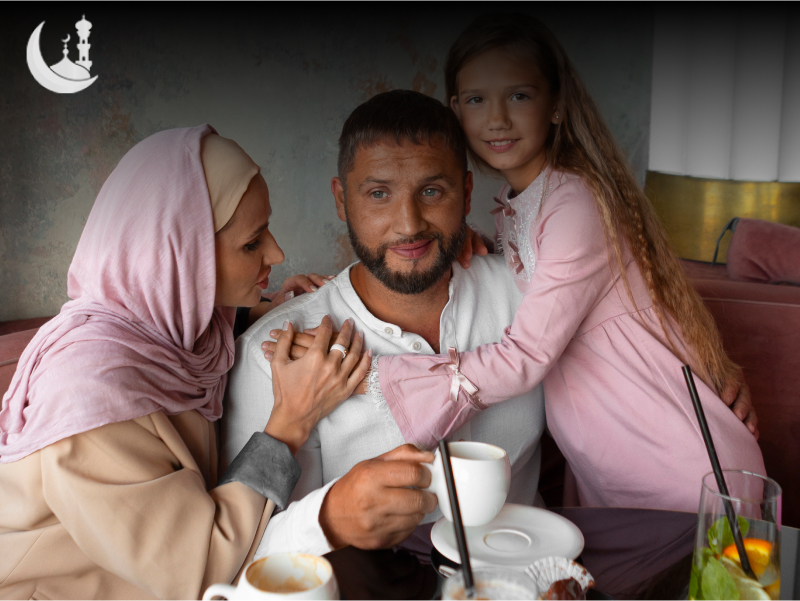It is very unpleasant and definitely emotionally stressful to go through a divorce regardless of the couple, but when children are involved, the stakes are much higher.
Thus, managing shared parenting for Muslim spouses can be not only based on the rules of Sharia but also directed to the protection of children. Indeed, this article aims to identify strategies that can be used by divorced couples since they will be sharing parenting responsibilities within the context of the Islamic religion. Read more to know about the Divorce Counseling Services in Atlanta.
Eliciting and appreciating the Islamic point of view of co-parenting
Regarding children, as it will be seen later in more detail, Islam attaches much importance to the care of them and their rearing. Indeed, the Quran and Hadith put forward instructions on both parents for their obligations regardless of divorce. It therefore focuses on achieving the goal of the children growing up in a loving, supportive, and Islamic environment.
-
Maintaining Respect and Communication
Respectful Interaction: Koran states that people need to respect one another, and raise their children with dignity, even after the divorce is granted. Surah Al-Hujurat (49:11) prohibits teasing and making fun of others which can help to respect each other while being co-parents.

Effective Communication: It is important that there is communication in terms of fluidity or the offered pathways are very obvious. Briefings of the kids’ requirements, developments in learning, health and any aspects of their physical and emotional well-being are essential. In Islam, the Prophet MUHAMMAD (PBUH) protects kind words and speaks to one another politely.
-
Prioritizing the Children’s Well-being
Best Interests of the Child: Every decision that is being made should be made with the children’s best interest in mind. This is in consonance with the teachings of Islam in as much as fairness and justice is concerned. Surah An-Nisa (4:135 standing firmly for justice by strength of righteousness answers the call to power as portrayed in the book of James chapter 4 verse 7.
Consistency and Stability: Every child, in order to develop properly and become a healthy individual, needs to feel his or her security is stable and constant. This means that rules and routines for children should be as similar as possible in both houses.
-
Implementing Islamic Parenting Values
Islamic Education and Morals: Protect their rights in getting proper Islamic education and moral direction in their lives. Both parents should be involved in making the children learn about Islamic values, Quran recitation, and any sunnah of the prophet (PBUH).

Involvement in Religious Activities: Enroll children in participation of religious activities such as praying, fasting in The month of Ramadan, which is appropriate for children, and going to the mosque. This helps to develop an Islamic element that is much wanted in society.
-
Utilizing Mediation and Counseling
Seeking Mediation: In case of disagreement, it would be wise to find an Islamic scholar or even a counselor. Arbitration is very important in the sense that conflicts and disagreements are settled by the courts through the principles of mediation that is allowed by the Islamic Sharia law.
Professional Counseling: On other occasions, people may require professional counseling to deal with other underlying problems. This is where Islamic counseling services come in and where these services have the cultural and religious background to offer support.
-
Establishing Clear Custody Arrangements
Custody According to Sharia: Shari’ah offers rules, recommendations and direction on child custody in which the mother has a right to custody up to the age of seven years and up to fifteen years for the father. But the best interest of the child is pretty important, and it is not very rare that something extra flexibility in such a case.
Visitation Schedules: The state shall ensure proper visitation rights to ensure children spend reasonable time with both parents as desired. Therefore, the actions must be flexible and collaborative in order to introduce the children’s needs and both parents’ interests.
-
Ensuring the Extended Family Network Is Strong
Involving Extended Family: One of the most notable practices in many Islamic cultures is the approach to childcare where extended families take essential responsibilities. Oliver and his siblings can also look towards their grandparents, aunts, and uncles for support and stability in their lives.
Maintaining Family Bonds: One must ensure that children learn the importance of being close to the two parents and their respective sides of the families. This helps in maintaining some form of identity and hope that you belong somewhere in this world.

If so, are you a post-divorce parent, who is looking for help on co-parenting with your ex-spouse based on Islamic requirements?
If so, Marrkazul Irrshaad Wa Tawjeeh is here to assist you with your needs. Most of our scholars and counselors are experienced, and we involve you with mediation, counseling, and ample information to ensure that you create the foregoing safe, religious, and improving surroundings for your children.
Let this be your starting point in making co-parenting work!
Contact Us: For specific information and assistance regarding your needs, do not hesitate to contact our team at.
Schedule a Session: Organise a mediation/counseling appointment with one of our professional personnel.
Learn More: Feel free to check out our programs and services that cater to your individual and family’s needs at the website.
Waste no more time; go to Marrkazul Irrshaad Wa Tawjeeh and begin the journey towards effective co-parenting for your beloved children based on guidance from Allah.
Conclusion
It cannot be denied that sharing parenting responsibilities once the marriage has ended is a tough deal; however, when the process follows Islamic teachings and aims to help the children, it will not be a problem.
Read Also: Preparing for Forever: Insightful Pre-Marriage Counseling Questions to Discuss
Good communication is also important; especially the possibility of the co-parents doing things in a loving, civil manner that does not harm the children in any way; assurance of a stable Islamic environment. That is why embracing these strategies will help divorced Muslim couples make their children to grow under proper growth and in an environment that will spiritually transform them.
FAQs
Q1) What guidelines should divorced parents adhere to in order to be good communicators based on the Quran and Hadith texts?
Respectful Dialogue: Treat people politely and do not use malicious words, phrases, and slurs on them. Surah Al-Hujurat (49:11) prohibits the process of making fun of others.
Regular Check-ins: Coordinated and planned all meetings relative to the aspects concerning the children securely and unanimously.
Mediation: Seek some help from a third person of no bias towards the situation if the Islamic scholar or counselor cannot be present.
Q2) Consider how the Islamic Shari’ah prescribes the rights of custody and visitation between parents.
Custody Guidelines: There are certain guidelines whereby, according to Islamic law, the mother has a preference in the early years, while the father has a preference as children get older; however, the focus should be on what is most beneficial for that child.
Visitation Schedules: One of the major objectives is to have a well-structured and stable calendar that will enable children to equally spend quality time with both parents.
Best Interests of the Child: Make sure that the rights of the child are always considered in every decision making considering the teachings of Islam where it is stated that Allah is Almighty, All-just and All-equitable (An-Nisa 4:135).
Q3) In what ways can the maximum participation of the extended family in the rearing of a child be made possible while appropriating the Islamic teachings on the same?
Supportive Roles: Priase your grandparents and relatives to give emotional support and focus on Islamic values.
Maintaining Family Bonds: Ensure the children have an avenue to occasionally meet their extended family members so that they can maintain their cultural identity.
Respect and Boundaries: Need to establish that other family members accept the new framework of co-parenting and stay out of the way when making these decisions.






